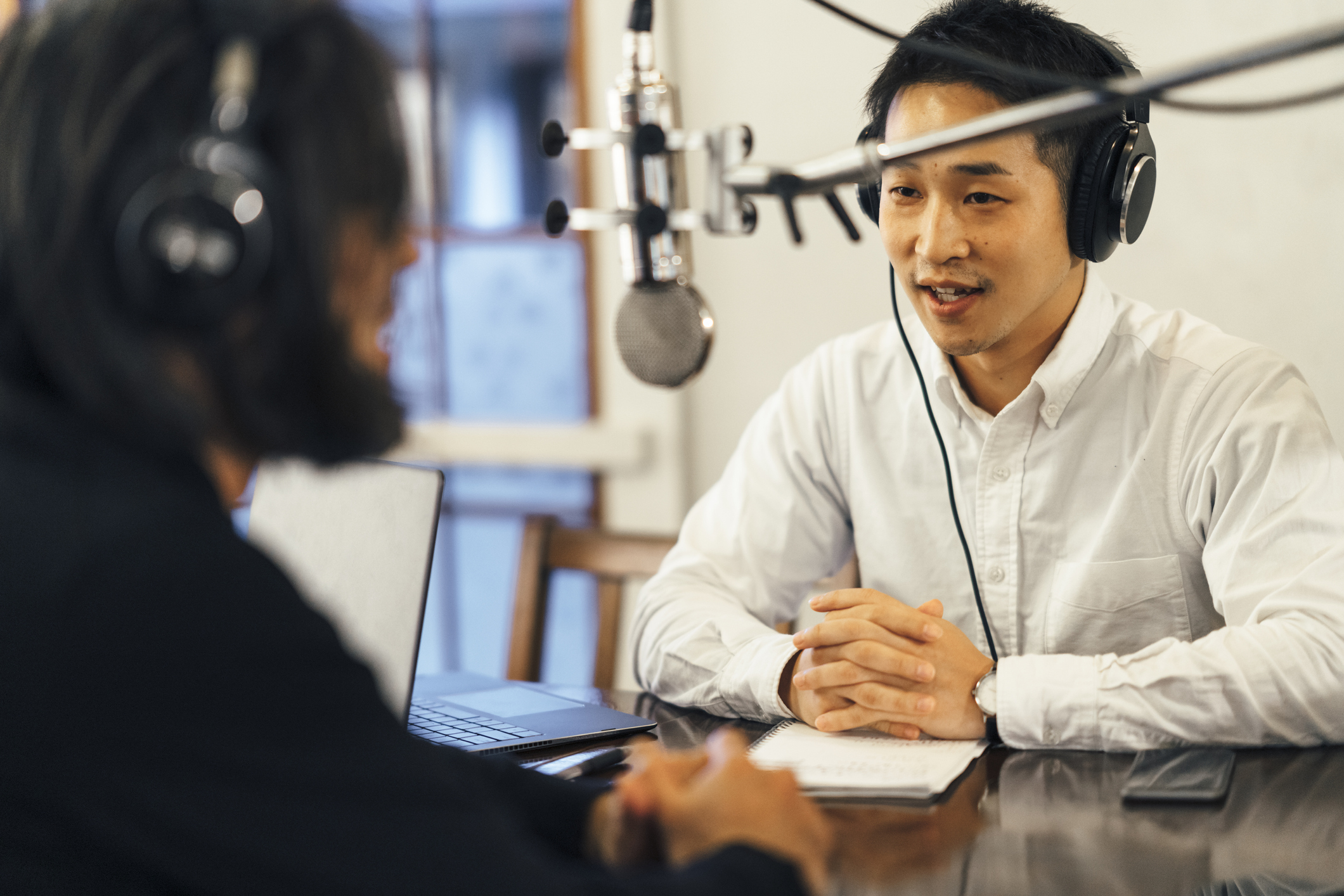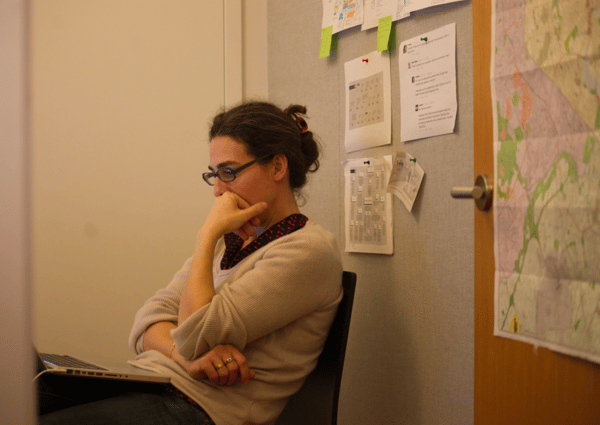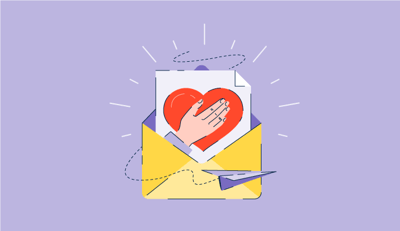May 6, 2019
 by Piper Thomson / May 6, 2019
by Piper Thomson / May 6, 2019

A well-executed interview can transform a podcast into something far more than two people talking into a microphone.
An interview is one of the most common techniques in the podcasting world, and it’s not hard to understand why. Including interviews in your podcast can bring a new perspective to a well-trodden issue, tell a unique and collaborative story, and teach something new to the listener and host alike.
However, despite its ubiquitousness as a tool for podcasters the world over, interviewing is a skill. Attempting one without the necessary knowledge or preparation could lead to a stilted and painful experience that could hinder rather than help your show.
Interviews have been used in a myriad of ways for varied purposes over the years. Whether done in the halls of academia or the circles of popular culture, interviews have always existed to serve one core purpose: to tease out fresh insight into a particular subject.
A great interview draws listeners into the orbit of the rapport between the host and guest. For the listener, this provides a unique experience with an expert they could never otherwise have. It situates the topic at hand in the context of the interview guest’s work and life, helping the audience understand it on a much more personal level and ultimately influence the way they see the world.
So, how do you bottle this magic?
Before you can get started bringing the wonders of interviewing to your podcast, you first have to figure out how to wrangle someone onto your show in the first place.
Booking a guest can seem intimidating if it’s not something you’ve done before. Despite this, getting an interview set up for your podcast is easier than you might think. If you’ve already had some success with hosting interviews on your show, the first thing you should do is leverage your existing network by asking for referrals from past guests you particularly liked. Chances are, they’ll have someone in mind that you’ll love talking with and will meet all your criteria for an appropriate guest!
| TIP: As the host, the onus is on you to double confirm the logistics for your interview bookings. Your guests are busy people with lives of their own! |
If you’re just starting out or haven’t hosted an interview before, you’ll probably need to send cold emails. Luckily, most experts will jump at the opportunity to express their ideas for a new audience. Just make sure you explain who you are, what your podcast is, and why you want to interview them.
The next part of setting up a successful interview is making sure the guest you book is the right one for your show. The most important factor for you to consider when searching for a guest is that you are personally curious about who this person is and what they’ve done.
If you have an authentic interest in a particular person, even if they aren’t the most famous or successful figure in a given field, you’ll have an easier time having an engaging conversation with them. Plus, it’s never bad to provide a platform to another member of a field you’re passionate about and diversify the voices on a particular subject.
If you’ve read my piece on how to come up with a compelling podcast idea, you’ll know that understanding your audience is crucial for all content creators; double for podcasters who often target niche groups and communities with their shows. Similar to when you’re ideating for a new series or show segment, the audience is the ultimate arbiter of success for your podcast and should be one of the first things you take into consideration.
While your interest in a potential guest is crucial for the actual execution of the interview, you also need to consider if the person aligns with the wants and needs your audience is looking for you to fulfill when they open an episode of your show. Ideally, a great guest will bring something to the table that your audience wasn’t even aware they wanted to know!
It’s going to be immediately apparent if you didn’t do your homework on your guests. You want to make sure you’ve researched your guest extensively in order to get a sense of their background. Doing so will help you highlight particular aspects of their experience and expertise that will be of the most interest to you and your listeners.
You also want to use this research to prepare a few questions to get the interview rolling. However, don’t rely too heavily on these to carry you through the entire interview. Almost worse than an unprepared interviewer is one that stifles the conversation by adhering to a rigid structure they decided on before their hapless guest had even spoken a single word.
It’s important to let the conversation play out once the initial questions have been asked. Often, the best stories from an interviewee come from giving their thoughts space to breathe.
This might feel counterintuitive. After all, you’re both there for a very specific purpose. It can be tempting to seize the reins of the conversation and steer the discussion towards that goal. Become comfortable with waiting for your guest to break the natural lulls that occur in the ebbs and flows of any organic dialogue. This will often result in them revealing something surprising and valuable that no amount of probing would have unveiled.
Your role as an interviewer is to help create the space for your guest do just that. Instead of questions that ask them what you think they should talk about, inquire about the insight they’ve already given you. Ask them to expand on something that caught your interest, or pose a question about their emotional reaction to a particular event or experience. In short, make it about them.
With all that said, it’s apparent that a good interview could take quite some time to execute. You need to keep your audience engaged during the period beyond the simple utility of providing information.
 Sarah Koenig, the host of the hit podcast Serial, interviewed everyone from prison inmates to members of the Taliban for her stories (Image courtesy of npr.org)
Sarah Koenig, the host of the hit podcast Serial, interviewed everyone from prison inmates to members of the Taliban for her stories (Image courtesy of npr.org)
You want to draw this impulse from your listeners; make sure the questions you ask and the topics you steer the interview towards are subjects that can’t be closed with simple, canned responses.
Stories are at the core of how humans communicate with one another. Not only do they help us make sense of the world around us, but they can also grip our attention for hours on end, suspending reality while we engage with the characters and emotions. We’re hard-wired to look for stories, and it’s rare to find someone who can resist a good one.
It can sometimes be downright impossible to meet with an interviewee. Timing, travel costs, and a host of other factors can easily keep you and your interview guest physically separated when you actually go to record your podcast interview. Luckily, there are a variety of good software options available for hosting and recording an interview via video chat.
Skype is completely free and can be used in tandem with a program called “Call Recorder” on Mac or “Pamela” on PC to record your calls.
|
Curious about the ways you can perform a remote interview? Check out the best video conferencing software now! |
Regardless of the software, make sure you have everything in working order before you hit record. There’s no worse feeling then conducting a great interview and not having it save properly!
While the only surefire way to become better at interviewing is to practice, there are a few things you can do to make sure you’re learning as much as you can from each experience.
Feedback is a crucial element to improving in any endeavor. When you’re learning a new skill, there’s a lot of fumbling around in the dark that can be illuminated by honest, critical advice.
It’s very easy to pick up bad habits unconsciously, and until someone points them out to you, chances are you’ll never notice. Solicit feedback early and often to make sure that doesn’t happen to you.
Absorbing techniques, styles, and common questioning tactics from more experienced interviewers are a quick way to improve your own skills. Every interview hosted by veterans is an opportunity for you to understand a little more about what makes a solid interview tick.
However, it’s important to make sure you develop your own style and don’t just emulate someone else.
This one is by far the most involved and time-consuming. When doing this, it’s important you write out what you hear from the recording verbatim.
While I was getting my bachelors in Sociology, I had to do this for a research seminar. While it was grueling to write out every stammer and false start from myself or my participant, it served to immerse me in the responses I received and the techniques I used to solicit them. You might even be surprised at how useful having a full transcription of some of your interviews can be!
Making a good interview isn’t easy, but the investment is more than worth it. The value it can add to a podcast is second to none, and it can be the basis for meaningful personal and professional relationships in any field of interest.
Interested in starting your own podcast? Check out our guide on how to start a podcast for everything you need to know!
Piper is a former content associate at G2. Originally from Cincinnati, Ohio, they graduated from Kenyon College with a degree in Sociology. Their interests include podcasts, rock climbing, and understanding how people form systems of knowledge in the digital age. (they/them/theirs)
After a job interview, most candidates focus on waiting for an update, a call, or even...
 by Harshita Tewari
by Harshita Tewari
At 18, I interviewed for a job at a local produce store. Three people, including the owner,...
 by Derek Doeing
by Derek Doeing
As a recruiter or hiring manager, you probably spend hours crafting thoughtful questions to...
 by Yashwathy Marudhachalam
by Yashwathy Marudhachalam
After a job interview, most candidates focus on waiting for an update, a call, or even...
 by Harshita Tewari
by Harshita Tewari
At 18, I interviewed for a job at a local produce store. Three people, including the owner,...
 by Derek Doeing
by Derek Doeing


